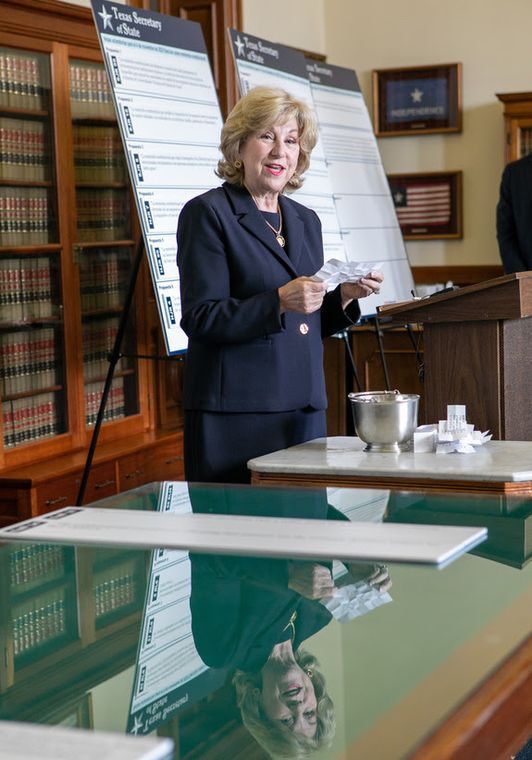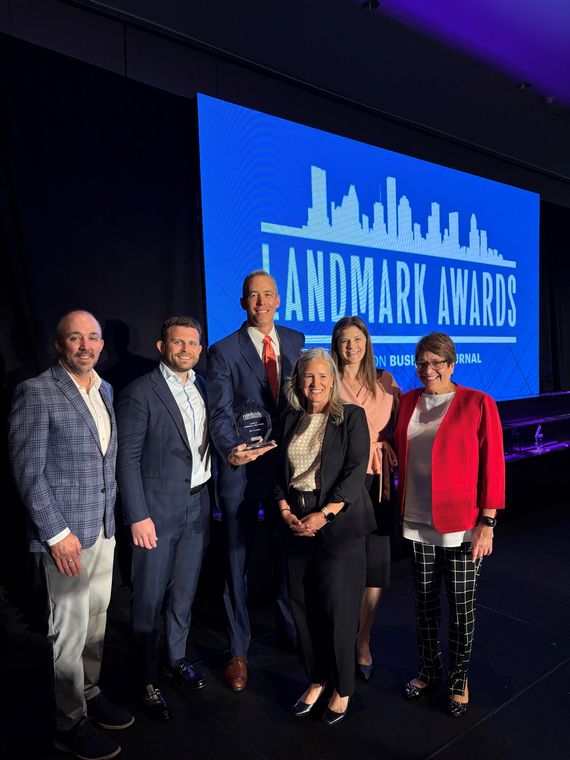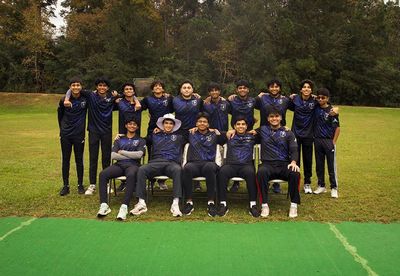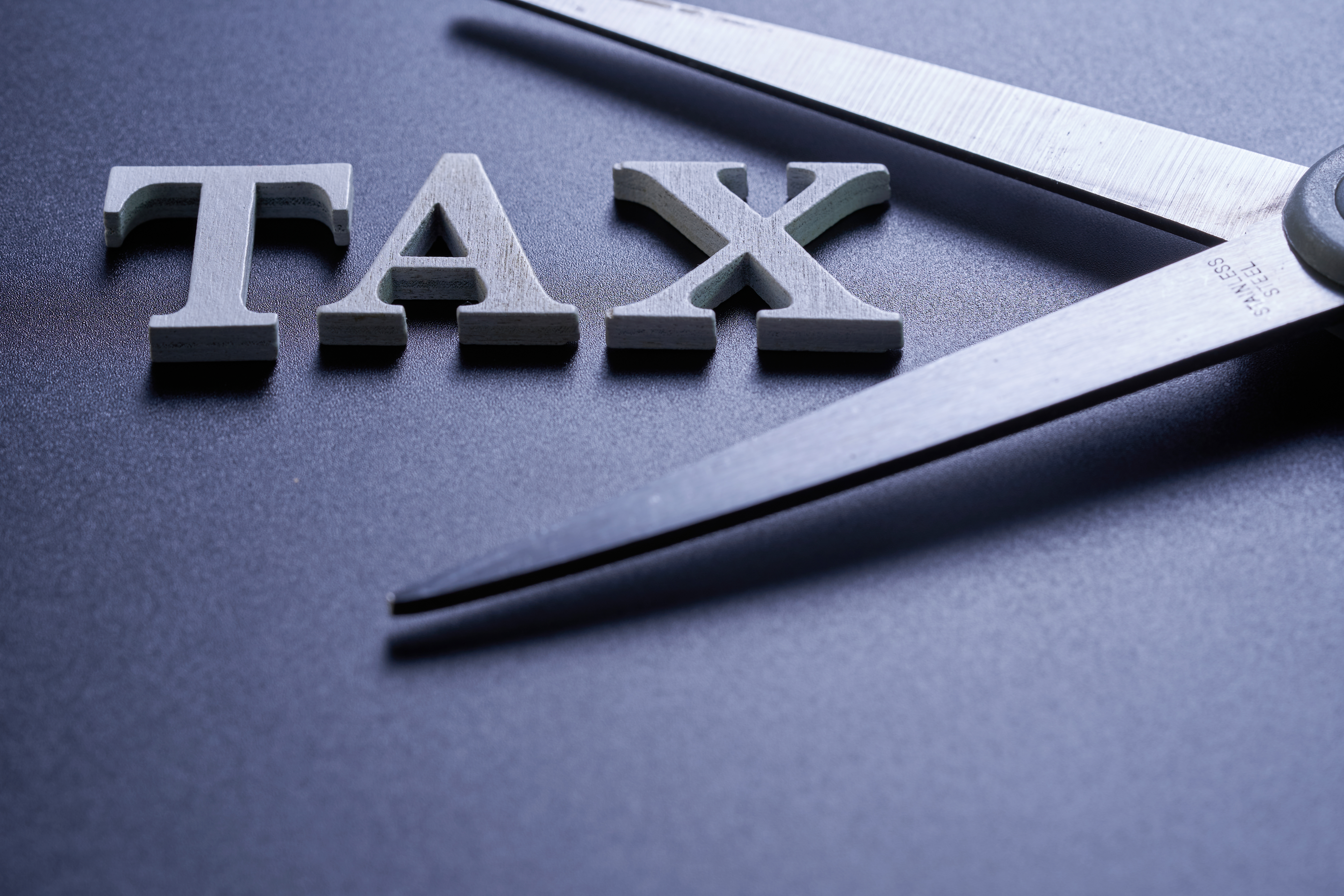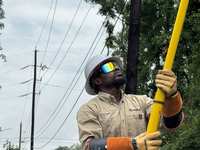- Sections :
- Crime & Public Safety
- Restaurants & Food
- Sports
- More
Categories
Local resident beta testing Google Glass explores uses for Autism

MONTGOMERY COUNTY, Texas -- A Montgomery County man is in a special position to help test and evaluate an exciting new technology that will likely blur the great divide between the real and the digital worlds forever.
Paul Louden of Spring, a high functioning adult on the autism spectrum, is one a select group of beta testers for the Google Glass Explorer program. The new technology is essentially a wearable computer with an optical display unit incorporated into modified eyeglass frames.
“The hardware and software are still in the early stages of development,” said Louden, “but the potential for future advancement is amazing. Google Glass might be a novelty now, but it represents a significant step forward.”
Louden was one of 8,000 individuals – and 2,000 developers – selected worldwide for the first testing of the product outside Google’s laboratory control. He was surprised when his application, presented in the 50-words-or-less required format, was selected.
“I indicated that I thought it would be interesting to explore how Google Glass could benefit those with autism or similar disorders,” he said. “I’m heavily into computer technology and have had to deal with autism all my life. It seemed like a unique perspective that separated me from the 100,000 people applying to beta-test Google Glass.”
Louden, 30, was selected for the test program and allowed to purchase the prototype product for $1,500. He flew to San Francisco for personalized training on how to use the Google Glass hardware and software.
“The end product is likely going to be much sleeker and more functional when it is officially released to the public,” said Louden. “I was told the consumer price is expected to be $300-400 and will probably be available in 2014.”
Google Glass features a prism mechanism above the right eye with a miniature screen smaller than a dime, but with DVD-resolution quality. The frame contains a five megapixel camera, a video camera capable of recording in 720P resolution and a miniature microphone and speaker for audio commands and listening. There are no lenses, though sunglasses or prescription lenses could be added.
“It also has Wi-Fi and Bluetooth capabilities,” said Louden. “The device has 16 gigs of memory, but you can pair it with your smart phone or other computer for virtually unlimited storage or access.”
With Google Glass, the wearer has access to a wide range of resources, including the Internet. Input commands are controlled by a tilting head movement and swiping or tapping the side panel of the frame. There are no buttons, switches or dials to manipulate.
“You tilt your head back to turn it on and ask a question aloud,” said Louden. “The words appear on the screen in front of your eye, followed by the answer. It’s quite amazing.”
Battery life is limited in the prototype, Louden said. In the week that he had Google Glass, he said four hours of heavy use is close to the maximum. Used less intensively, he believes the device would last up to eight hours – and he expects the final consumer version will have a larger battery capable of longer lasting capabilities.
“You don’t need it all the time,” he said, “but it’s handy when you want it.”
While public access to Google Glass has been limited till now, concern has been expressed in the media about how the product represents a potential loss of privacy because of its recording capabilities. Louden dismisses this as inconsequential considering the widespread use of cell phones and digital technology. The few people that have noticed his Google Glass in public have been curious, but supportive.
At present, Google Glass offers few advantages over a smart phone, other than being more conveniently accessible and an innovative leap forward in miniaturization technology. The potential for the hands-free device, however, is amazing and unlimited.
“People can load a shopping list before going to the store,” he said. “They check things off the list as they go, compare prices with online retailers and check for product reviews before they buy. You have a world of information at your fingertips.”
Google Glass also allows the wearer to watch videos via the high-tech specs. And while the clarity is surprisingly good for such a small screen, video uses up battery power at a rapid pace. He doesn’t recommend the technology for casual video watching – yet. But he has several ideas on how Google Glass could benefit those with high-functioning autism.
“There are a number of physical and social challenges associated with autism,” explained Louden. “Emotions and behavior can be experienced differently from mainstream society. Social interaction and personal organization can be very challenging, and often are misunderstood by the public at large.”
Louden, who hosts a weekly podcast call Understanding Autism, has first-hand experience with the difficulties of organizing basic requirements. He said autism can impair memory function – leaving many afflicted with the disorder uncertain of daily functions others take for granted.
While he is in the preliminary stages of evaluation of Google Glass, Louden has a few suggestions he said would benefit high-functioning autism sufferers. One is a camera function that would take one picture a minute throughout the day – allowing the wearer to review the entire range of activity at the end of the day to see what was accomplished and what was not.
“It would be great to be able to access the calendar and GPS functions as tools to help remind someone of specific tasks or obligations,” said Louden. “The unit could be a gentle reminder to go to the vet, pick up mail or whatever is required. And the GPS function could reinforce the reminder when we get close to the specific location that a task needs to be accomplished.”
Louden acknowledged the beta product is a bit cumbersome and there only a few applications available specifically designed for Google Glass. But he is convinced the product will be a very popular, versatile and valuable resource in the future.
“The first generation of any technology is always subject to refinement and improvement,” said Louden. “Google Glass is no different – but it has amazing potential for the future.”
For information on Google Glass, visit www.google.com/glass. For information on Paul Louden’s radio show/podcast, visit www.understanding-autism.info.
Paul Louden of Spring, a high functioning adult on the autism spectrum, is one a select group of beta testers for the Google Glass Explorer program. The new technology is essentially a wearable computer with an optical display unit incorporated into modified eyeglass frames.
“The hardware and software are still in the early stages of development,” said Louden, “but the potential for future advancement is amazing. Google Glass might be a novelty now, but it represents a significant step forward.”
Louden was one of 8,000 individuals – and 2,000 developers – selected worldwide for the first testing of the product outside Google’s laboratory control. He was surprised when his application, presented in the 50-words-or-less required format, was selected.
“I indicated that I thought it would be interesting to explore how Google Glass could benefit those with autism or similar disorders,” he said. “I’m heavily into computer technology and have had to deal with autism all my life. It seemed like a unique perspective that separated me from the 100,000 people applying to beta-test Google Glass.”
Louden, 30, was selected for the test program and allowed to purchase the prototype product for $1,500. He flew to San Francisco for personalized training on how to use the Google Glass hardware and software.
“The end product is likely going to be much sleeker and more functional when it is officially released to the public,” said Louden. “I was told the consumer price is expected to be $300-400 and will probably be available in 2014.”
Google Glass features a prism mechanism above the right eye with a miniature screen smaller than a dime, but with DVD-resolution quality. The frame contains a five megapixel camera, a video camera capable of recording in 720P resolution and a miniature microphone and speaker for audio commands and listening. There are no lenses, though sunglasses or prescription lenses could be added.
“It also has Wi-Fi and Bluetooth capabilities,” said Louden. “The device has 16 gigs of memory, but you can pair it with your smart phone or other computer for virtually unlimited storage or access.”
With Google Glass, the wearer has access to a wide range of resources, including the Internet. Input commands are controlled by a tilting head movement and swiping or tapping the side panel of the frame. There are no buttons, switches or dials to manipulate.
“You tilt your head back to turn it on and ask a question aloud,” said Louden. “The words appear on the screen in front of your eye, followed by the answer. It’s quite amazing.”
Battery life is limited in the prototype, Louden said. In the week that he had Google Glass, he said four hours of heavy use is close to the maximum. Used less intensively, he believes the device would last up to eight hours – and he expects the final consumer version will have a larger battery capable of longer lasting capabilities.
“You don’t need it all the time,” he said, “but it’s handy when you want it.”
While public access to Google Glass has been limited till now, concern has been expressed in the media about how the product represents a potential loss of privacy because of its recording capabilities. Louden dismisses this as inconsequential considering the widespread use of cell phones and digital technology. The few people that have noticed his Google Glass in public have been curious, but supportive.
At present, Google Glass offers few advantages over a smart phone, other than being more conveniently accessible and an innovative leap forward in miniaturization technology. The potential for the hands-free device, however, is amazing and unlimited.
“People can load a shopping list before going to the store,” he said. “They check things off the list as they go, compare prices with online retailers and check for product reviews before they buy. You have a world of information at your fingertips.”
Google Glass also allows the wearer to watch videos via the high-tech specs. And while the clarity is surprisingly good for such a small screen, video uses up battery power at a rapid pace. He doesn’t recommend the technology for casual video watching – yet. But he has several ideas on how Google Glass could benefit those with high-functioning autism.
“There are a number of physical and social challenges associated with autism,” explained Louden. “Emotions and behavior can be experienced differently from mainstream society. Social interaction and personal organization can be very challenging, and often are misunderstood by the public at large.”
Louden, who hosts a weekly podcast call Understanding Autism, has first-hand experience with the difficulties of organizing basic requirements. He said autism can impair memory function – leaving many afflicted with the disorder uncertain of daily functions others take for granted.
While he is in the preliminary stages of evaluation of Google Glass, Louden has a few suggestions he said would benefit high-functioning autism sufferers. One is a camera function that would take one picture a minute throughout the day – allowing the wearer to review the entire range of activity at the end of the day to see what was accomplished and what was not.
“It would be great to be able to access the calendar and GPS functions as tools to help remind someone of specific tasks or obligations,” said Louden. “The unit could be a gentle reminder to go to the vet, pick up mail or whatever is required. And the GPS function could reinforce the reminder when we get close to the specific location that a task needs to be accomplished.”
Louden acknowledged the beta product is a bit cumbersome and there only a few applications available specifically designed for Google Glass. But he is convinced the product will be a very popular, versatile and valuable resource in the future.
“The first generation of any technology is always subject to refinement and improvement,” said Louden. “Google Glass is no different – but it has amazing potential for the future.”
For information on Google Glass, visit www.google.com/glass. For information on Paul Louden’s radio show/podcast, visit www.understanding-autism.info.
Comments •





